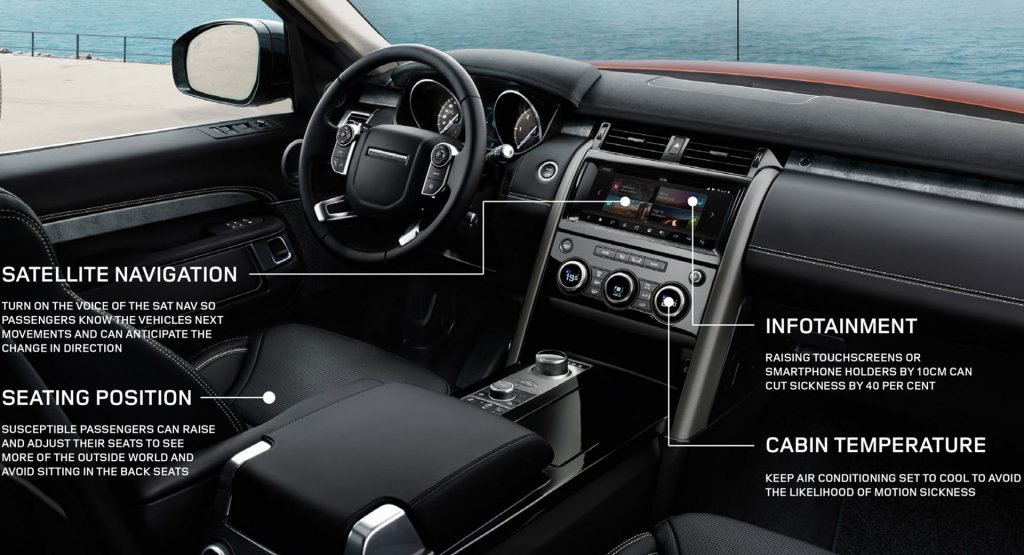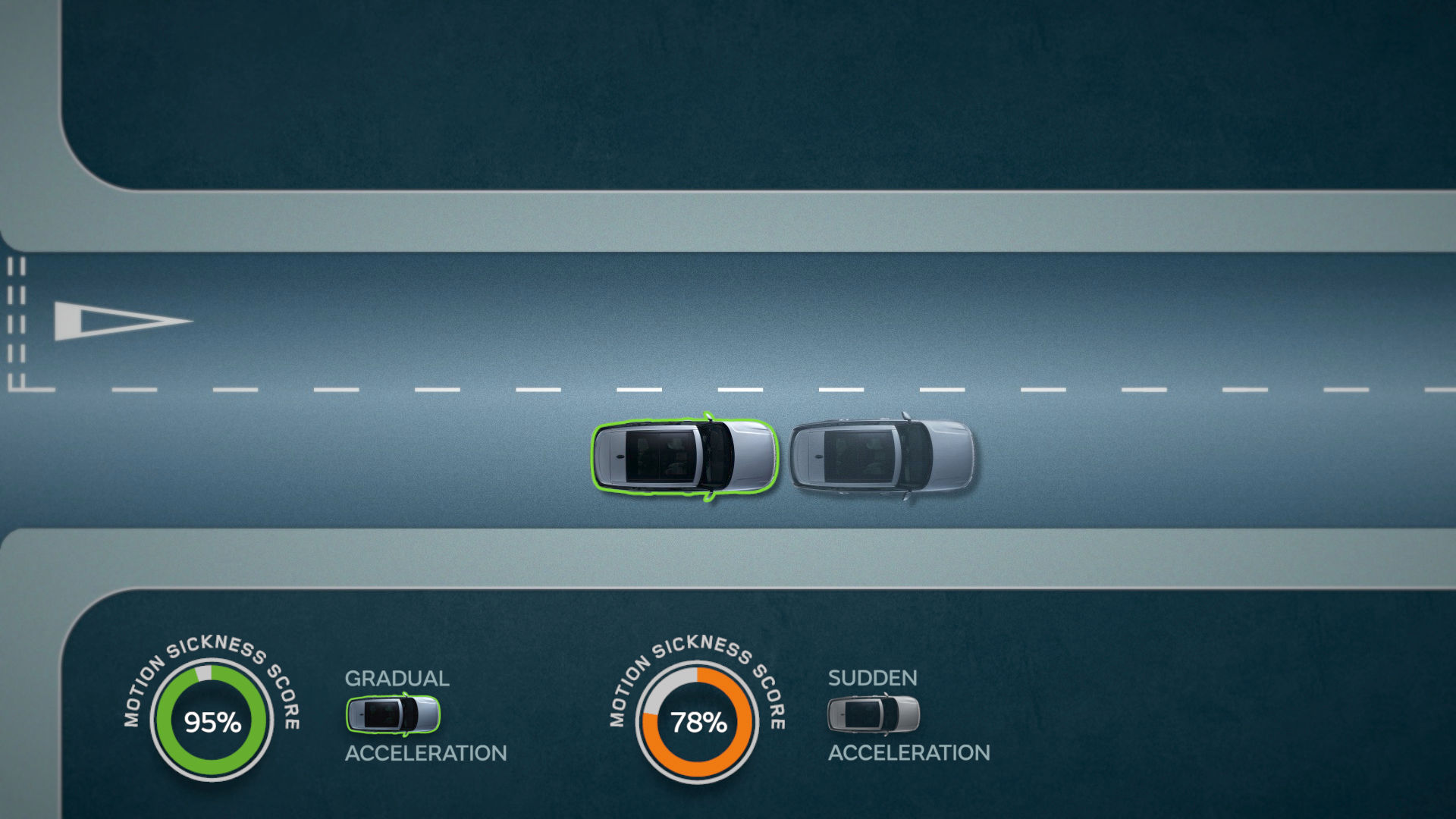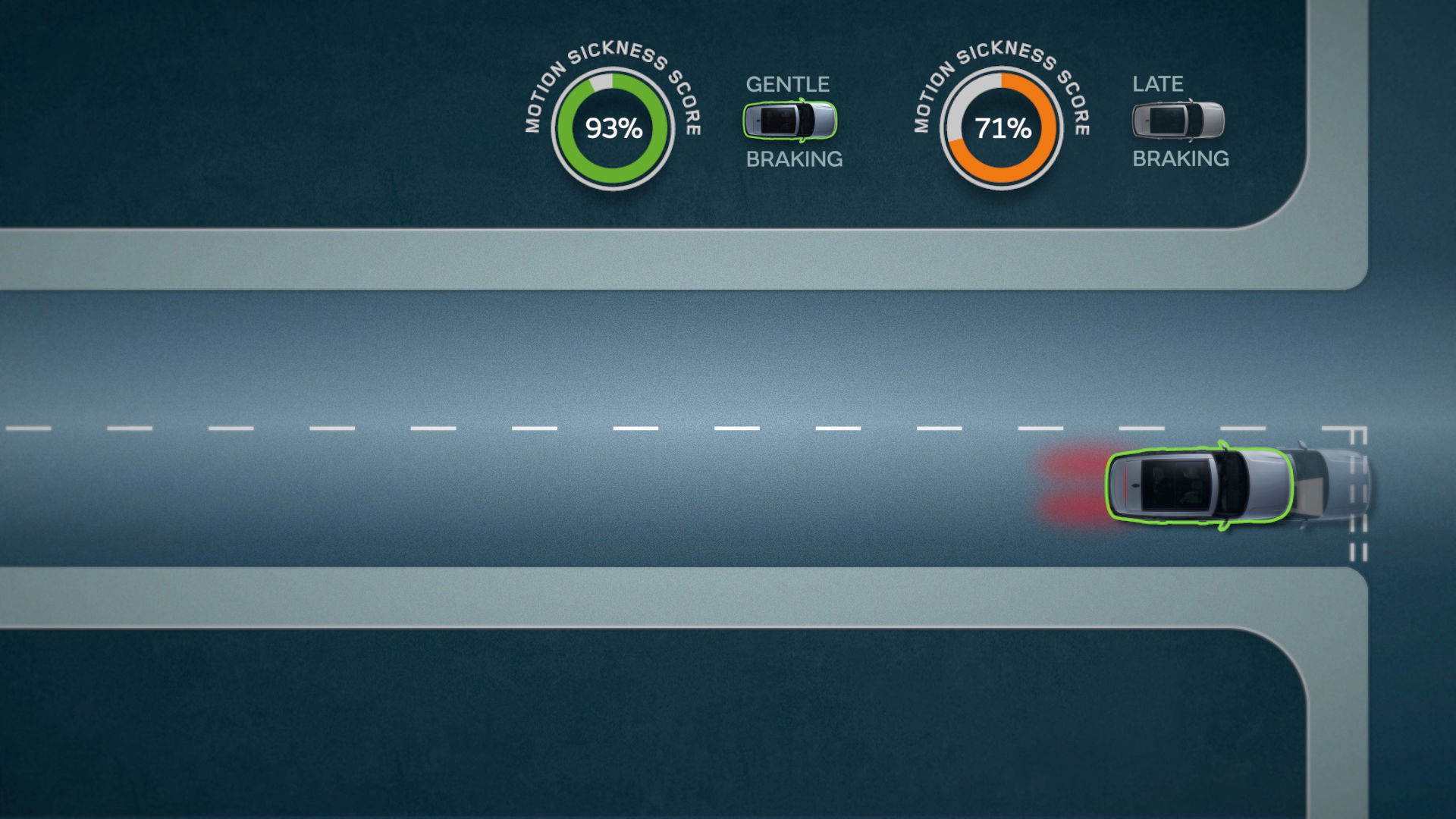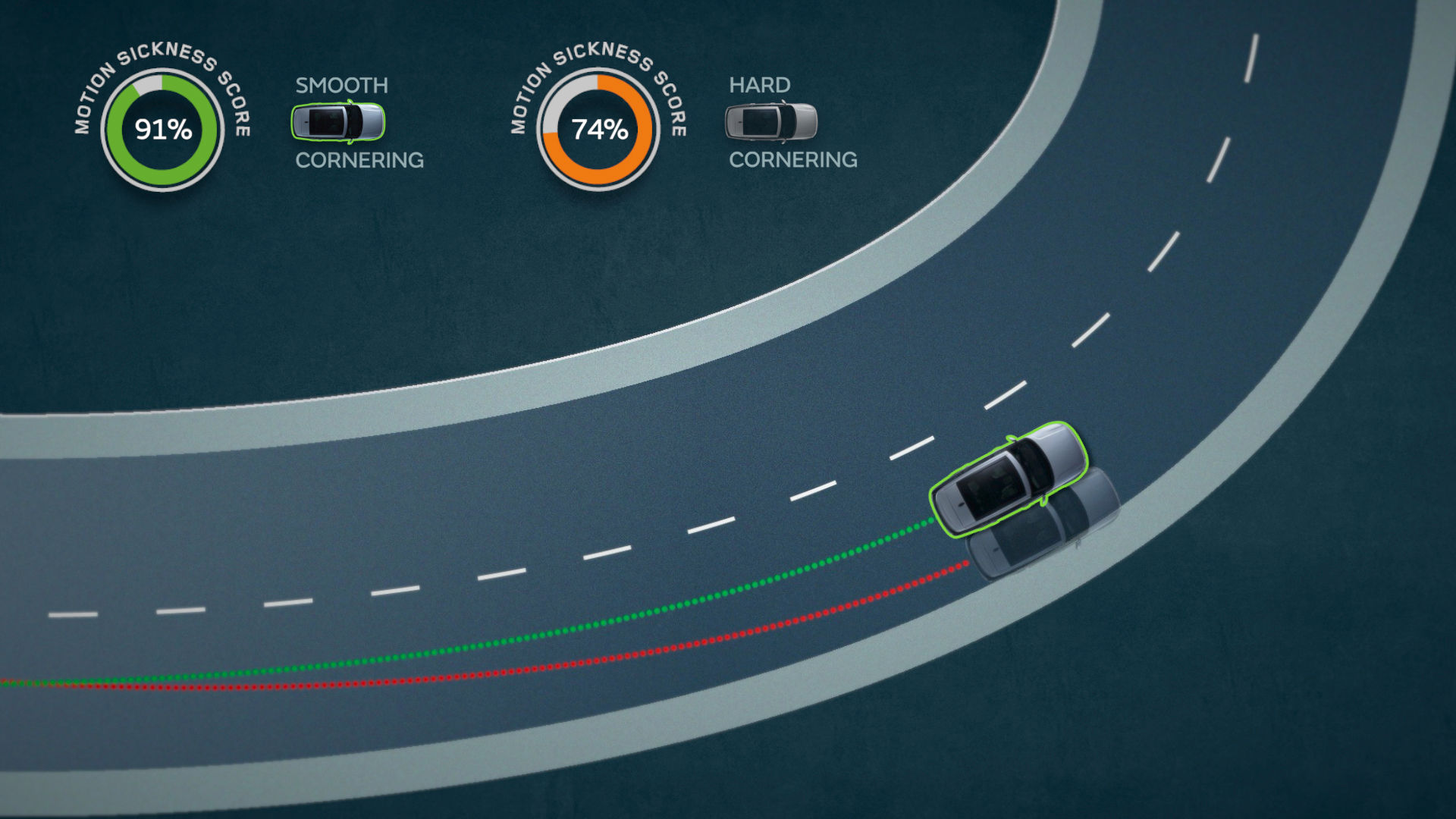Jaguar Land Rover is developing a system that aims to mitigate the feeling of motion sickness by adapting the driving style of future autonomous vehicles.
The British car manufacturer first detailed its system back in late 2018, and since then has implemented the changes into its self-driving software. According to JLR, its autonomous system can reduce the impact of motion sickness by up to 60 per cent.
Jaguar Land Rover notes that motion sickness is often caused when the eyes observe information different from that sensed by the inner ear, skin or body. The company’s system uses braking, acceleration and lane positioning to reduce this unpleasant feeling.
Read Also: Jaguar Land Rover’s Project Vector Autonomous Platform To Start UK Trials In 2021
Advanced machine learning is being used to allow autonomous vehicles in JLR’s testing fleet to optimize their driving style based on data gathered from every mile covered. This technology can be used to “teach” each Jaguar and Land Rover vehicle how to drive autonomously while still maintaining the individual characteristics of each model.
“Mobility is rapidly changing, and we will need to harness the power of self-driving vehicles to achieve our goal of zero accidents and zero congestion,” Jaguar Land Rover chief medical officer Dr. Steve Iley said stated. “Solving the problem of motion sickness in driverless cars is the key to unlocking the huge potential of this technology for passengers, who will be able to use the traveling time for reading, working or relaxing.”
JLR’s work into minimizing motion sickness forms part of its ‘Destination Zero’ plan, an ambition the automaker has to make societies safer and healthier while also making their environments cleaner through innovation.






